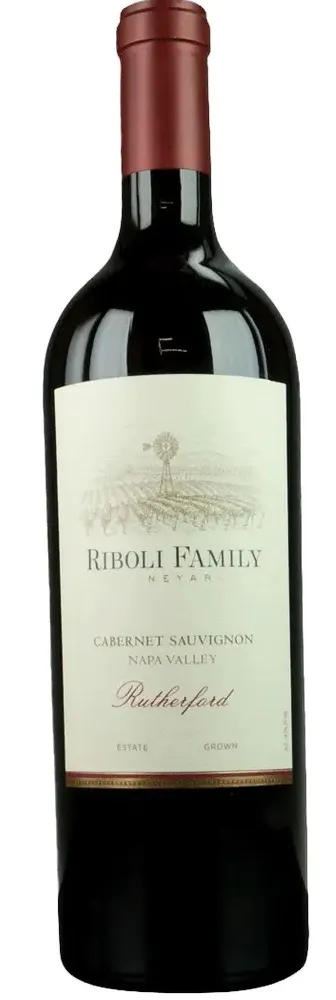9th Circuit Expands Service of Process Against Foreign Defendant
On November 14, 2022, in San Antonio Winery, Inc. v. Jiaxing Micarose Trade Co., Ltd.,1 the Court of Appeals for the 9th Circuit held that process may be effected on a nonappearing foreign defendant in a trademark infringement suit through service upon the Director of the USPTO. This was a case of first impression and could greatly expand the ability of U.S.-based plaintiffs to serve a distant and otherwise unattainable defendant.
 RIBOLI FAMILY® wine, owned by San Antonio Winery
RIBOLI FAMILY® wine, owned by San Antonio Winery
15 U.S.C. §1051(e) of the Lanham Act reads:
(e) DESIGNATION OF RESIDENT FOR SERVICE OF PROCESS AND NOTICES. If the applicant is not domiciled in the United States the applicant may designate, by a document filed in the United States Patent and Trademark Office, the name and address of a person resident in the United States on whom may be served notices or process in proceedings affecting the mark. Such notices or process may be served upon the person so designated by leaving with that person or mailing to that person a copy thereof at the address specified in the last designation so filed. If the person so designated cannot be found at the address given in the last designation, or if the registrant does not designate by a document filed in the United States Patent and Trademark Office the name and address of a person resident in the United States on whom may be served notices or process in proceedings affecting the mark, such notices or process may be served on the Director.
(Emphasis added.)
Plaintiff San Antonio Winery is a well-known wine producer from Southern California, and owner of the RIBOLI® and RIBOLI FAMILY® trademark registrations which have been in use in commerce since 1998. Defendant Jiaxing Micarose Trade Co., Ltd., is a Chinese company which sells goods under the Riboli name, first in 2018 on clothes and shoes in International Class 25, then in 2020 for various kitchen-related goods in International Class 21.2 This represents a significant overlap with the goods sold by San Antonio. San Antonio filed a suit in the Central District of California alleging trademark infringement, dilution, and false designation of origin. San Antonio’s attempts at serving Jiaxing process gave rise to the subject litigation. The district court held that based on the Gallo rule,3 proper service upon a foreign defendant could only be perfected through adherence with the Hague Service Convention, which allows for service of process on a defendant abroad by “any internationally agreed means of service that is reasonably calculated to give notice.” Since San Antonio could not afford to wait to use the Hague Service procedures, which would take several months to perfect, it opted instead to serve process vis-à-vis the Director of the USPTO, as delineated under §1051(e). However, the district court denied San Antonio’s motion for default judgment because service on Jiaxing was improper. The Circuit panel, comprised of Judges Siler, Callahan and Thomas, with Judge Thomas writing for a unanimous court, found otherwise.
Looking at the text of §1051(e), the plain and ordinary meaning of “process” means “court proceeding,” since there is no similar concept in an administrative proceeding before the USPTO. Process, by legal definition means “compelling a defendant to appear in court.”4 Judge Thomas wrote:
Were we to construe Section 1051(e) to apply solely to administrative proceedings, the word “process” would be superfluous. Only “notices” would ever be served. We decline to adopt this interpretation.5
The panel did note that there were no other persuasive authority from its sister circuits directly on point. However, there was a district court decision in the 9th Circuit which held in Gallo the opposite of the present opinion. In Gallo, the district court found that because the legislative histories of other federal statutes referenced “court proceedings” explicitly in the text, its failure to not be explicit in §1051(e) indicated that Congress did not intend for the Lanham Act to apply to court. However, Judge Thomas disagreed.
Although the use of different language in separate provisions of the same statute can indicate that the provisions have different meanings, this presumption “can hardly be said to apply acorss the whole corpus juris.” … the statutes identified by the Gallo court have no connection to the Lanham Act – they have nothing to do with trademarks, or even intellectual property writ large. These statutes are therefore of little value in determining the meaning of Section 1051(e).
The panel vacated and remanded the case.
The takeaway is that the Lanham Act now gives U.S. plaintiffs fighting infringement against an intransigent and foreign defendant which is protected from the U.S. courts by international law a secondary route to serve that defendant in absentia.
Footnotes
-
___F.4th___ (9th Cir. 2022), rev’g and remanding San Antonio Winery, Inc. v. Jiaxing Micarose Trade Co., Case No. CV-20-9663, 2021 WL 6752252 (C.D. Cal. Apr. 5, 2021). ↩
-
Upon the filing of this case, the USPTO subsequently cancelled Jiaxing’s Class 25 registration for RIBOLI, and terminated Jiaxing’s Class 21 application for RIBOLI. ↩
-
See E. & J. Gallo Winery v. Cantine Rallo, S.p.A., 430 F. Supp. 2d 1064, 1083 (E.D. Cal. 2005). ↩
-
See Black’s Law Dictionary, for definition of “process.” ↩
-
See City of Chicago v. Fulton, 141 S. Ct. 585, 591 (2021) (“The canon against surplusage is strongest when an interpretation would render superfluous another part of the same statutory scheme.”). ↩

Brent T. Yonehara
Founder & Patent Attorney
Founder Brent Yonehara brings over 20 years of strategic intellectual property experience to every client engagement. His distinguished career spans AmLaw 100 firms, specialized boutique I.P. practices, cutting-edge technology companies, and leading research universities.
More About Brent